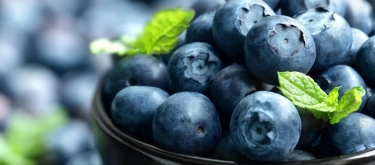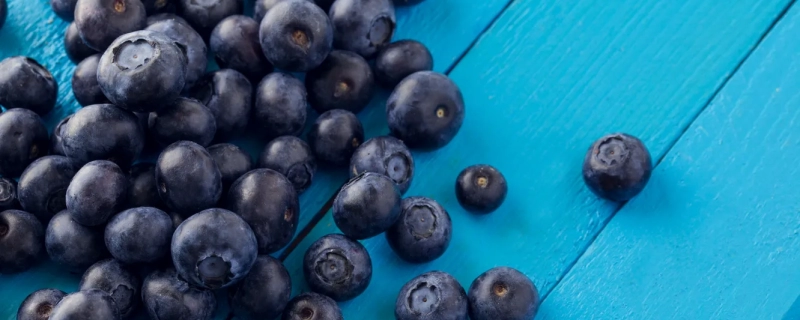Category: Fruits and Berries
Blueberry: Taste, Uses, and Benefits
Blueberry (Vaccinium corymbosum), a small yet nutrient-packed fruit, is beloved for its sweet and mildly tart flavor. Known for its deep blue color and versatility, blueberry has become a staple in kitchens around the world. Whether eaten fresh, baked, or blended, its unique taste and health benefits make it a favorite for all ages.
What does Blueberry taste like?
Primary Flavor Characteristics
Blueberry offers a mild sweetness with a subtle tartness that varies based on ripeness. Ripe blueberries are juicy and sweet, while under-ripe ones have a sharper tang. The flavor is rounded out by earthy undertones and a hint of floral notes, making it both refreshing and satisfying.
Aromatic and Taste Nuances
Blueberries have a delicate aroma that is fruity and floral, with a touch of earthiness. Their flavor profile evolves during cooking, becoming sweeter and more concentrated.
Scientific Description of Taste and Aroma
- Aroma: Fruity, floral, and slightly woody.
- Taste: Sweet with a mild tartness and earthy undertones.
- Texture: Juicy with a firm skin and small seeds that are barely noticeable.

In-Depth Flavor Analysis of Blueberry
Underlying Flavor Notes:
- Sweetness: Subtle and pleasant, more pronounced in fully ripe berries.
- Tartness: Adds a refreshing zing, especially in less ripe berries.
- Earthy Undertones: A grounding flavor that complements its sweetness.
- Floral Notes: Light and aromatic, enhancing the berry’s elegance.
Impact of Preparation on Flavor:
- Raw: Crisp and juicy, perfect for snacking.
- Cooked: Heat intensifies the sweetness and brings out jammy, caramel-like notes.
- Frozen: Maintains much of its flavor, though the texture softens.
Culinary Uses of Blueberry
Blueberries are versatile and can elevate a variety of dishes. From breakfasts to desserts, their mild flavor complements numerous ingredients.
Primary Uses:
- Snacking: Enjoyed fresh or dried as a healthy snack.
- Desserts: Used in pies, muffins, cakes, and cobblers.
- Breakfast: A popular topping for cereals, oatmeal, yogurt, and pancakes.
- Beverages: Blended into smoothies, juices, and cocktails.
- Sauces: Reduced into glazes or compotes for meats and desserts.
Ideal Pairings:
- Sweet: Pairs beautifully with honey, vanilla, and cinnamon.
- Fruits: Blends well with strawberries, peaches, and lemon.
- Dairy: Complements cream, yogurt, and cheeses like ricotta or mascarpone.
- Nuts: Works harmoniously with almonds, pecans, and walnuts.
Health Benefits of Blueberry
Blueberries are often referred to as a superfood due to their high nutrient content and powerful antioxidants.
Key Nutrients and Benefits:
- Rich in Antioxidants: Contains anthocyanins, which fight oxidative stress and reduce inflammation.
- High in Vitamin C: Boosts immunity and supports skin health.
- Dietary Fiber: Promotes healthy digestion and regulates blood sugar.
- Low-Calorie: A cup of blueberries contains about 80 calories, making them a guilt-free treat.
- Brain Health: Studies suggest that blueberries may improve memory and cognitive function.
Potential Precautions:
- Pesticide Residue: Choose organic or wash thoroughly to reduce exposure.
- Overconsumption: Excessive amounts may cause digestive discomfort in some individuals.

Tips for Choosing and Storing Blueberry
How to Choose Quality Blueberry:
- Color: Look for deep blue or purple berries with a slight frosted sheen.
- Firmness: Choose plump, firm berries that are free from wrinkles.
- Aroma: Fresh blueberries should have a mild, fruity smell.
Storage Recommendations:
- Refrigeration: Store unwashed berries in the fridge for up to 5 days.
- Freezing: Spread on a tray to freeze individually before transferring to a container.
- Preservation: Turn into jams, jellies, or syrups to extend shelf life.
Fun Facts About Blueberry
- Native to North America: Blueberries have been enjoyed for centuries by Native American tribes.
- Antioxidant Champion: Blueberries are one of the most antioxidant-rich fruits available.
- Symbol of Summer: They peak in summer, making them a seasonal favorite.
- Versatile in Cultivation: Highbush and lowbush varieties cater to both commercial and wild harvesting.
Resources
Books and Publications for Further Reading:
- "The Berry Grower: Inspiring Passionate Farmers" by Blake Cothron
– A comprehensive guide to cultivating and using berries, including blueberries. - "On Food and Cooking: The Science and Lore of the Kitchen" by Harold McGee
– Explores the chemistry and culinary uses of berries like blueberries. - "The Blueberry Years: A Memoir of Farm and Family" by Jim Minick
– A personal story highlighting the challenges and joys of blueberry farming. - "The Fruit Gardener's Bible" by Lewis Hill and Leonard Perry
– Practical advice on growing and harvesting blueberries and other fruits.